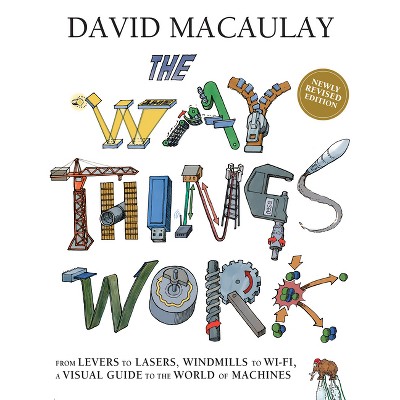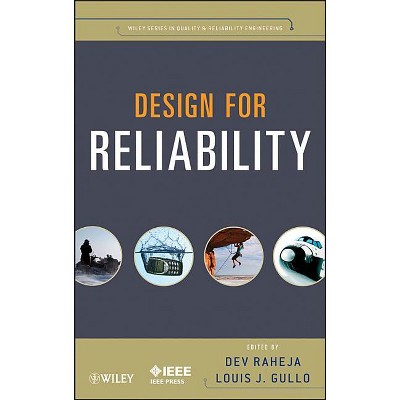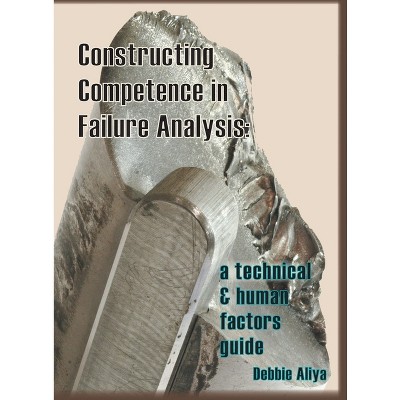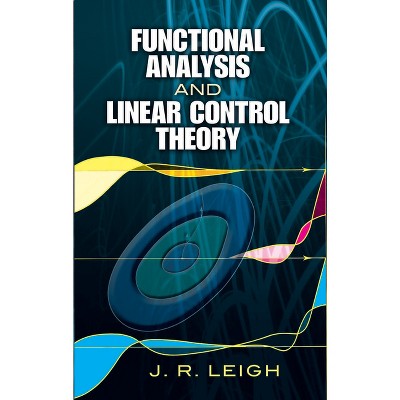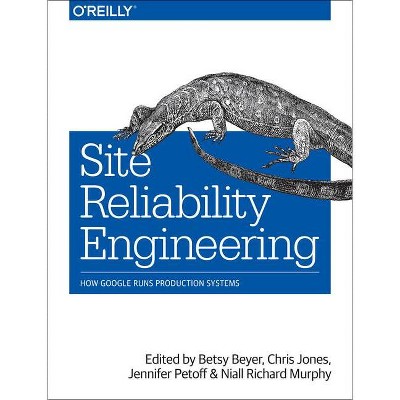Sponsored

Failure Analysis - (Quality and Reliability Engineering) by Marius Bazu & Titu Bajenescu (Hardcover)
In Stock
Sponsored
About this item
Highlights
- Failure analysis is the preferred method to investigate product or process reliability and to ensure optimum performance of electrical components and systems.
- About the Author: Dr. Marius Bazu, National Institute for Research and Development in Microtechnologies, IMT-Bucharest, Bucharest, RomaniaDr. Bazu is currently Head of the Reliability Laboratory and Vice-Chair of the Scientific Council at the National Institute for Microtechnologies, IMT-Bucharest, Romania.
- 352 Pages
- Technology, Electronics
- Series Name: Quality and Reliability Engineering
Description
About the Book
"Manufacturers of electronic components, devices, ICs and electronic systems, also reliability testing engineers and managers in this area"--Book Synopsis
Failure analysis is the preferred method to investigate product or process reliability and to ensure optimum performance of electrical components and systems. The physics-of-failure approach is the only internationally accepted solution for continuously improving the reliability of materials, devices and processes. The models have been developed from the physical and chemical phenomena that are responsible for degradation or failure of electronic components and materials and now replace popular distribution models for failure mechanisms such as Weibull or lognormal.Reliability engineers need practical orientation around the complex procedures involved in failure analysis. This guide acts as a tool for all advanced techniques, their benefits and vital aspects of their use in a reliability programme. Using twelve complex case studies, the authors explain why failure analysis should be used with electronic components, when implementation is appropriate and methods for its successful use.
Inside you will find detailed coverage on:
- a synergistic approach to failure modes and mechanisms, along with reliability physics and the failure analysis of materials, emphasizing the vital importance of cooperation between a product development team involved
- the reasons why failure analysis is an important tool for improving yield and reliability by corrective actions
- the design stage, highlighting the 'concurrent engineering' approach and DfR (Design for Reliability)
- failure analysis during fabrication, covering reliability monitoring, process monitors and package reliability
- reliability resting after fabrication, including reliability assessment at this stage and corrective actions
- a large variety of methods, such as electrical methods, thermal methods, optical methods, electron microscopy, mechanical methods, X-Ray methods, spectroscopic, acoustical, and laser methods
- new challenges in reliability testing, such as its use in microsystems and nanostructures
This practical yet comprehensive reference is useful for manufacturers and engineers involved in the design, fabrication and testing of electronic components, devices, ICs and electronic systems, as well as for users of components in complex systems wanting to discover the roots of the reliability flaws for their products.
From the Back Cover
Failure analysis is the preferred method to investigate product or process reliability and to ensure optimum performance of electrical components and systems. The physics-of-failure approach is the only internationally accepted solution for continuously improving the reliability of materials, devices and processes. The models have been developed from the physical and chemical phenomena that are responsible for degradation or failure of electronic components and materials and now replace popular distribution models for failure mechanisms such as Weibull or lognormal.Reliability engineers need practical orientation around the complex procedures involved in failure analysis. This guide acts as a tool for all advanced techniques, their benefits and vital aspects of their use in a reliability programme. Using twelve complex case studies, the authors explain why failure analysis should be used with electronic components, when implementation is appropriate and methods for its successful use.
Inside you will find detailed coverage on:
- a synergistic approach to failure modes and mechanisms, along with reliability physics and the failure analysis of materials, emphasizing the vital importance of cooperation between a product development team involved
- the reasons why failure analysis is an important tool for improving yield and reliability by corrective actions
- the design stage, highlighting the 'concurrent engineering' approach and DfR (Design for Reliability)
- failure analysis during fabrication, covering reliability monitoring, process monitors and package reliability
- reliability resting after fabrication, including reliability assessment at this stage and corrective actions
- a large variety of methods, such as electrical methods, thermal methods, optical methods, electron microscopy, mechanical methods, X-Ray methods, spectroscopic, acoustical, and laser methods
- new challenges in reliability testing, such as its use in microsystems and nanostructures
This practical yet comprehensive reference is useful for manufacturers and engineers involved in the design, fabrication and testing of electronic components, devices, ICs and electronic systems, as well as for users of components in complex systems wanting to discover the roots of the reliability flaws for their products.
About the Author
Dr. Marius Bazu, National Institute for Research and Development in Microtechnologies, IMT-Bucharest, Bucharest, Romania
Dr. Bazu is currently Head of the Reliability Laboratory and Vice-Chair of the Scientific Council at the National Institute for Microtechnologies, IMT-Bucharest, Romania. More than 50 National research projects on the reliability of electronic components have been co-ordinated by Dr. Bazu. He is a member of the Management Board and Chair of the Reliability Cluster of the Network of Excellence "Design for Micro and Nano Manufacture- PATENT-DfMM". From 1997 until 1999 he was Leader of a European project on a built-in reliability technology, and in 2000 he received the AGIR (General Association of Romanian Engineers) Award for implementing a technology of Building-In Reliability to a Romanian semiconductor company. Dr Bazu is the co-author of four Romanian Patents and has contributed to over 120 scientific papers. Since 1986 he has been Invited Professor for post-graduate courses on Reliability at the University Polytechnic Bucharest. He has presented invited lectures to international conferences held across Europe, including Austria, Romania, and Serbia.
Mr. Titu Bajenescu, Switzerland
Since 1985, Mr Bajenescu has worked as an independent consultant and international expert on engineering management, telecommunications, reliability, quality and safety. He has worked in the reliability, safety and maintainability office of the Ministry of Defence, designing and manufacturing experimental equipment for army research and air defence systems. With Asea Brown Boveri in Switzerland he was involved in the design and manufacture of new industrial equipment for telecommunications. More recently Mr. Bajenescu joined Ascom and as Reliability Manager, contributing to the development of new ITU and IEC standards. He became Quality and Reliability Manager and Product Assurance Manager of Messtechnik und Optoelektronic. Mr. Bajenescu has authored numerous technical books which have been published in English, French, German and Romanian, and has written many papers on modern telecommunications, and quality and reliability engineering and management. He currently speaks on these subjects as a visiting lecturer at universities around Europe.

